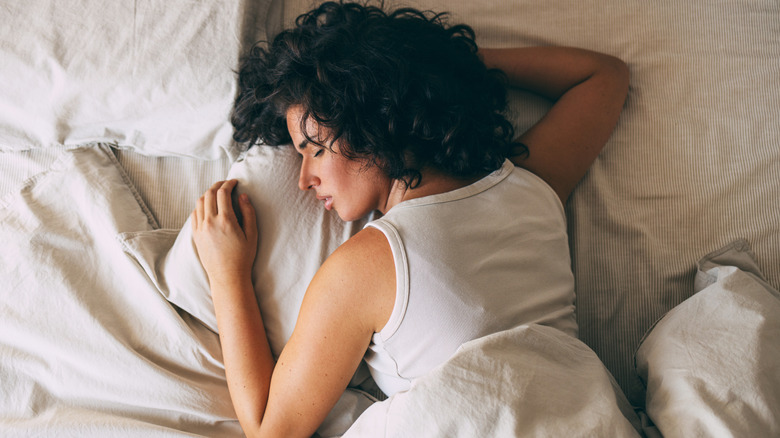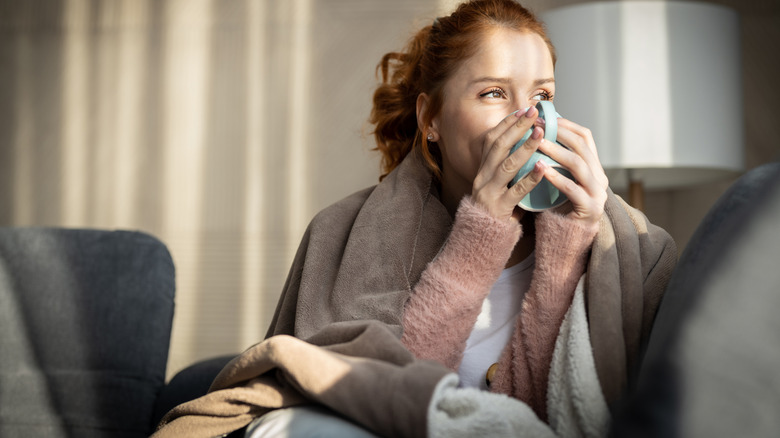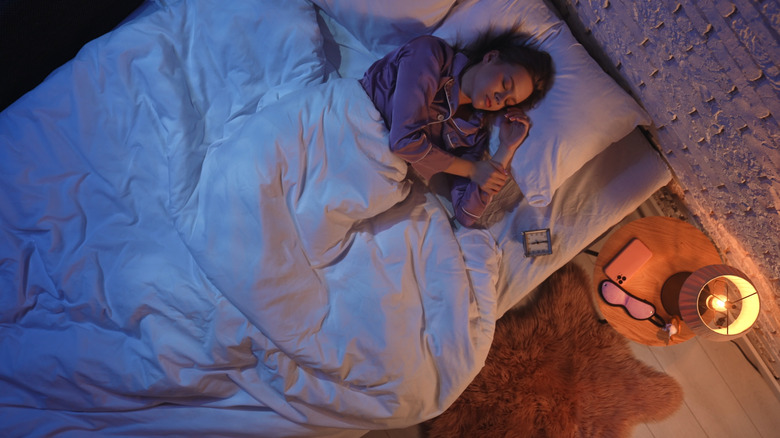How To Get A Better Night's Sleep, According To Experts
Sleep is so important to overall health and wellness. But along with getting enough sleep, it's also important to get good quality sleep. How much sleep you need depends on different factors, but general guidelines suggest adults need at least seven hours nightly. Of the three main sleep stages — core, REM, and deep — at least 1.5 hours of your rest, or about 25%, should consist of deep sleep. When you enter deep sleep, your body regrows and repairs tissue, your bones build muscle, your immune system is strengthened, and your appetite is regulated. So, you could theoretically sleep for eight hours or more per night but still not be getting what experts would call a "good night's sleep" if a sufficient amount isn't deep sleep.
To increase this, try to limit indulgences like caffeine, alcohol, and screen time right before bed. Maintain a consistent bedtime and set up a sleep environment that's conducive to getting quality rest. A device like a smartwatch that tracks sleep, some of which even give a sleep score, can help you gauge sleep quality. If you often feel unrested when you awaken or you're restless at night, you might be lacking deep sleep and you could benefit from these tips.
Limit indulgences late at night
One of the most obvious ways to help improve your deep sleep is to limit certain indulgent activities close to bedtime. This includes refraining from consuming alcohol and caffeine within a few hours of going to bed. Consider that the half-life of caffeine is four to six hours. This means if you have a coffee after dinner, half of it still remains in your body when you're ready to turn in, making it difficult to fall asleep.
Further, try to limit screen time. Rather than watching or streaming TV right before turning in, turn it off at least an hour before, and try reading a book instead. This goes for late-night phone scrolling as well. While it's tempting to pull out your phone in bed and scrolling through Instagram Reels or TikToks until your eyes start to droop, this isn't a good idea. The light from your mobile device sends signals to your brain to fire on all cylinders at a time when it should actually be winding down for rest. The light decreases melatonin production, a hormone your brain produces to regulate your sleep cycle. This, in turn, can negatively impact your sleep quality.
Set the right environment
It's crucial as well to have the right sleep environment. Tantamount to that is maintaining a consistent bedtime. If you find that you're yawning a lot, that's a good indication that it's time to turn in for the night. Set a bedtime alert for the same time each night to get your body's internal clock in a rhythm. Once you head to bed, it should be dark without stimulating lights. It should also be cool in temperature — never crank the heat too high.
Additionally, consider the medications you take. Beta blockers, for example, which treat high blood pressure or serious migraines, decrease melatonin production. Antidepressants can also negatively impact your deep sleep duration. If you take either of these, you may wish to speak to your doctor about how to address sleep issues relating to them.
Failing to get enough sleep, but most importantly, lacking good quality deep sleep, doesn't just make you groggy, it can negatively impact your overall health and wellness. From your mood to your brain acuity, alertness, appetite, and stress, along with overall brain and body development and repair, deep sleep is more important than you think.


